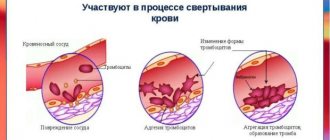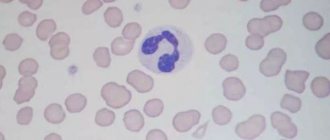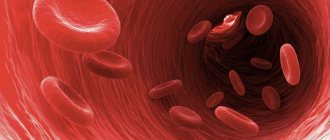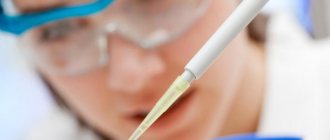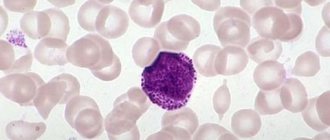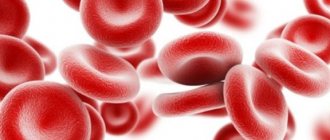Cholesterol
To reduce triglyceride levels, it is recommended to follow a diet and lead a healthy lifestyle. Such methods are especially effective if you have the maximum permissible levels (150-199 mg/dL).
Diet and a healthy lifestyle should include:
- Maintaining a healthy weight.
- Limit fat and sugar intake.
- Active lifestyle.
- Limited alcohol consumption.
You can also take medications to lower your triglyceride levels. The drugs may be used if you have risk factors for coronary artery disease. In this case, your doctor may first give you treatment to lower your LDL levels and raise your HDL levels, and then work on your triglycerides.
Controlling LDL and HDL levels can reduce the risk of heart attack and death, but the risks of high triglyceride levels are not as well known. For more information about optimal levels and treatment of high cholesterol, see the section entitled "High Cholesterol."
Initial treatment
Diet and a healthy lifestyle are the first steps to help you lower your triglyceride levels.
Diet and healthy lifestyle include:
- Maintaining a healthy weight or limiting calories to lose weight.
- Limited consumption of carbohydrates and unhealthy fats.
- Active lifestyle.
- Limited alcohol consumption
- To give up smoking.
- Maintaining blood sugar at near-optimal levels if you have diabetes.
Adding fish oil (omega-3 fatty acids) to your diet will help lower triglyceride levels. You can eat fish at least 2 times a week or take supplements. Fatty fish varieties high in omega-3 fatty acids include salmon, tuna and mackerel.
You may try Therapeutic Lifestyle Changes (TLC) or the TLC Diet. TLC is a combination of diet and healthy lifestyle that will help you lower your cholesterol.
To limit the amount of carbohydrates you eat, it can be helpful to know how many carbohydrates are in different foods.
Alcohol has a particularly strong effect on triglyceride levels. Regular heavy drinking and even one binge drinking session can cause triglyceride levels to rise significantly. Binge drinking can cause triglyceride levels to spike, which can lead to pancreatitis. Your doctor will ask you to limit or completely stop drinking alcohol.
Before you start exercising, talk to your doctor about its safety. You can also consult a nutritionist to create a healthy diet.
Your doctor will test you for conditions that may cause high triglyceride levels, such as hypothyroidism, poorly controlled diabetes, and kidney disease. Elevated triglyceride levels can also be caused by taking certain medications. Your doctor may change your dosage or tell you to stop taking this drug.
Current treatment
If your triglyceride levels do not fall despite living a healthy lifestyle, you may also need to take medications. The treatment your doctor prescribes for you depends on more than just your triglyceride levels. Your doctor will also take into account your cholesterol levels and other risk factors for heart disease.
If you have high cholesterol and other risk factors for heart disease, you may need a combination of medications that target different types of cholesterol. You may be assigned:
- Statins.
- Fibrates.
- Nicotinic acid.
Statins are used to lower LDL levels. They can also lower triglyceride levels and even increase HDL levels. Typically, the more a drug lowers LDL levels, the more it lowers triglyceride levels. When LDL reaches optimal levels, you can start taking fibrates or niacin to more effectively lower triglyceride levels. Both of these drugs also increase HDL levels.
If your triglyceride levels are very high, your doctor may first prescribe medications to lower your triglyceride levels to prevent damage to your pancreas.
People taking statins should be wary of fibrates. Combining these drugs increases your risk of developing a life-threatening muscle disease called acute skeletal muscle necrosis, which can lead to kidney failure. Therefore, before combining these drugs, it is necessary to check the condition of the kidneys and liver. If you experience muscle pain, contact your doctor immediately.
Treatment for exacerbation of the disease
If you haven't taken medications to lower your triglycerides before, you'll probably start doing so. If you are already taking medications and they are not working as expected, your doctor may change your dosage or prescribe you a new medication. You may take medications such as:
- Statins.
- Fibrates.
- A nicotinic acid.
- Omega-3 fatty acids (fish oil).
People taking statins should be wary of fibrates. Combining these drugs increases your risk of developing a life-threatening muscle disease called acute skeletal muscle necrosis, which can lead to kidney failure. Therefore, before combining these drugs, it is necessary to check the condition of the kidneys and liver. If you experience muscle pain, contact your doctor immediately.
Your doctor may prescribe medications that contain omega-3 fatty acids (such as Lovaza). Omega-3 fatty acids are also found in fatty fish such as salmon or tuna. But the drugs are a highly concentrated form of omega-3 fatty acids, which help lower triglyceride levels. They may raise LDL levels slightly, so your doctor should monitor your cholesterol levels closely if you take Lovaza.
You should think about whether you can lead a healthy lifestyle. You may need help achieving your goals. Consider working with a registered dietitian to help you develop a healthy diet. Remember the importance of exercise - visit a sports center or hire a personal trainer who will create an interesting, fun and effective exercise program for you. You can choose walking to increase your physical activity.
Low triglycerides in the blood: what does this mean?
Hypotriglyceridemia is a condition in which a general analysis or lipid profile shows a persistent decrease in the level of triglycerides in the blood serum. This means that the body does not have enough fats, it does not absorb them well or cannot produce them in the required volume.
The main reason why you should be wary of triglyceride deficiency is a person’s lack of vital energy necessary for his full functioning. Also, all lipid-dependent processes (stimulation of metabolism, formation of cell membranes, thermoregulation, etc.) suffer from hypotriglyceridemia: they are inhibited or stop completely.
The normal concentration of triglycerides is individual - it is determined by the age and gender of the patient:
- in children from birth to 14 years – 0.32–1.46 mmol/l;
- in women from 14 to 45–60 years old – 0.41–2.72 mmol/l;
- in men from 14 to 55–65 years old – 0.60–3.58 mmol/l;
- in old people aged 50–65 years and older – 0.61–2.86 mmol/l.
If the value of neutral fats falls beyond the lower limit, this indicates a high risk of disruption of the physiological mechanism of neuromuscular transmission, which is accompanied by severe fatigue and can lead to the development of serious diseases
Reference . A decrease in triglyceride levels is usually accompanied by changes in other lipid parameters, as well as a slower erythrocyte sedimentation rate (ESR) and a decrease in platelet counts.
Consequences of inaction and lack of treatment
Hypotriglyceridemia, provoked by increased production of thyroid hormones (hyperthyroidism), can have negative consequences on the cardiovascular system:
- congestive heart failure (myocardial weakness) – the inability of the heart to pump large volumes of blood;
- heart rhythm disorders - rapid heartbeat (tachycardia) and atrial fibrillation (atrial fibrillation).
These complications are reversible, but if treated incorrectly or not, there is a risk of a heart attack or even a heart attack.
Low triglyceride levels also mean an increased risk of developing certain autoimmune diseases:
- bronchial asthma, atopic dermatitis, hepatitis C and B;
- systemic lupus erythematosus, myasthenia gravis and rheumatoid polyarthritis.
In addition, a decrease in triglycerides in the blood can sometimes lead to scarring of the lung tissue (pneumosclerosis) in advanced diseases of the respiratory system.
Are there tangible signs of impairment?
It happens that a decrease in body weight by 5–10% of normal values is accompanied by a proportional decrease in the level of triglycerides in the blood (by 10–20%), so sudden weight loss can sometimes be a symptom of the development of hypotriglyceridemia.
But in most cases, a decrease in triglyceride concentrations is not accompanied by specific symptoms - a person simply feels a general deterioration in their health:
constant feeling of fatigue, lack of physical strength and energy;- frequent viral (ARVI) and infectious respiratory diseases (ARI);
- unreasonably depressed mood, even depression;
- slow healing of skin damage;
- low (hypotension) or low blood pressure (hypotension).
Important! The longer a person ignores low triglyceride levels, the more likely the effects become chronic. To avoid this, you should not wait for visible symptoms to appear, but periodically (once every 2–4 years) take a blood test to study your lipid profile (lipidogram).
How to increase triglyceride levels in the blood?
In most cases, a decrease in triglycerides is directly or indirectly associated with metabolic disorders in the body, so in order to normalize fat levels, it is necessary to restore natural metabolism. Usually, to do this, it is enough to start leading a healthy lifestyle (moderate activity, sleep, proper nutrition) and the content of triglycerides in the blood will increase by itself.
Nutrition adjustments
To increase triglyceride levels, the diet must contain sufficient amounts of high-calorie foods. It does not matter which products supply energy, since the formation of organic compounds is possible from both plant and animal sources.

The best foods to increase triglyceride levels in the body.
If the root of the problem lies in impaired fat absorption, then a number of rules must be followed:
- do not eat food that may have an allergenic (dairy and cereal products) and laxative (beets, prunes, unripe fruits) effect;
- for better absorption, divide the daily diet into 4–6 equal meals;
- focus on high-carbohydrate foods (especially important if triglyceride levels are low and cholesterol is high).
Important! During the treatment of hypotriglyceridemia, foods high in vitamin C (citrus fruits, sweet peppers, kiwi, rose hips) are excluded from the diet, and the use of its synthetic analogue is stopped.
Medications
If the level of triglycerides in the blood is low, you need to support the body’s functioning with medications:
- take dietary supplements (dietary supplements) with increased concentrations of micro- and macroelements, as well as fat-soluble vitamins A, D, E, K and group B;
- in case of poor digestion of food, compensate for the lack of pancreatic enzymes with special medications (Pancreatin, Creon, Micrazim).
If the cause of hypotriglyceridemia is any concomitant disease, then in parallel it is necessary to use drugs for its treatment: for example, for hyperthyroidism - antithyroid drugs (Tiamazole, Carbimazole and Propylthiouracil), and for pulmonary pathologies - bronchodilators (Atrovent, Fenoterol, Eufillin).


